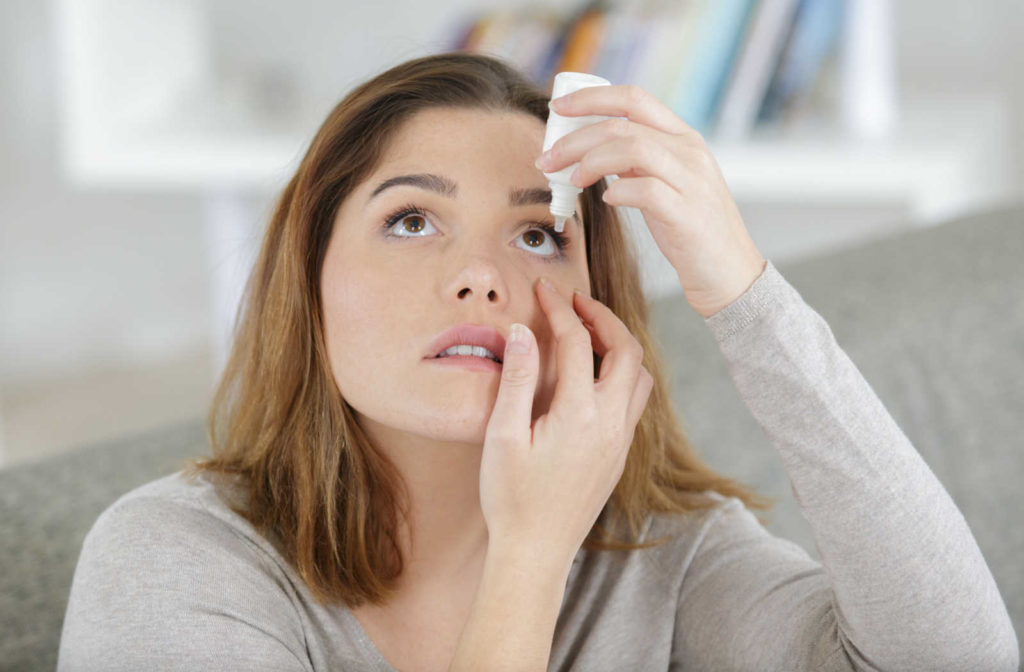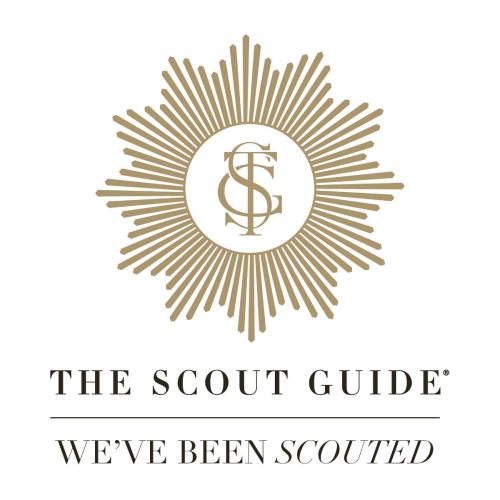If you’re someone who experiences dry eyes, you understand the discomfort and inconvenience it can bring. And sometimes, the contact lenses you wear to correct your vision only make it worse.
Fortunately, contact lenses can still be an option for those with dry eyes, as long as you choose the right type and follow proper lens care. Even if you live with dry eyes, your optometrist is here to help you get the most out of your vision.
Dry Eyes & Contact Lenses
Dry eyes occur when your tear glands don’t produce enough tears or when the tears evaporate too quickly. You need healthy tears to keep your eyes protected and nourished. So when they don’t get enough, this can result in various irritating symptoms, including:
- Stinging or burning sensation
- Redness
- Sensitivity to light
- Blurred vision
- Watery eyes
- Eye fatigue
- Mucus buildup around the eyes
Who Can Get Dry Eyes?
Anyone can experience dry eyes. They may be a one-time occurrence, or they could be an ongoing frustration in your daily life. Some factors that could increase your chance of developing dry eyes are:
- Eye allergies
- Windy, dry, or hot environments
- Aging
- Biological sex (female)
- Taking medication such as antihistamines or decongestants
Wearing Contacts with Dry Eyes
And as you may have suspected, wearing contact lenses can worsen dry eye symptoms if not managed properly. For example, some contacts may absorb the limited moisture from your eye or restrict airflow to the eyes. In addition, every pair of contact lenses has a time limit on how long they should be worn, and overwearing them typically results in irritation.
However, it’s also possible you could be wearing the wrong prescription, or your contact lenses aren’t the right fit. Ensuring the contacts you’re wearing are correct for you is the purpose of a contact lens fitting.
Are Daily Contacts Better for Dry Eyes?
While many different types of contact lenses exist, they are generally split into two categories: soft and rigid gas permeable (RGP). Soft is, by far, the most popular lens type, with about 90% of contact wearers using soft lenses. They’re also sometimes called “disposable lenses” since they’re meant to be discarded after their wearing period and replaced.
Disposable doesn’t necessarily mean single-use. Your replacement schedule could be monthly, weekly, or daily. In fact, daily disposable contact lenses offer several advantages for individuals with dry eyes.
Overall, soft lenses (which daily contacts are) are considered more comfortable to wear and take less adjustment time. This may be a welcome relief for those whose eyes are already irritated by dryness.
Daily contacts have all the advantages of soft contacts, with the added benefit of being thinner than contacts that need to last a week or longer. And by replacing fresh lenses every day, you reduce the risk of bacterial or microbial contamination. This also means you don’t have to worry about cleaning solutions that may cause eye irritation and allergies.
Without all that buildup on your lenses, your eyes can breathe easy with improved comfort. Dailies may also reduce the chances of dry eyes and eye infections.

Tips for Managing Dry Eyes
Daily disposable contacts, unfortunately, won’t work for everyone. Some people’s symptoms or lifestyles are better suited for longer wear schedules.
That’s why picking the appropriate lenses is an excellent start to managing your dry eyes, but it’s best used as part of a larger plan. Here are some tips that may reduce your dry eye symptoms while wearing contacts:
- Drink plenty of water to stay hydrated.
- Eat foods rich in omega-3 fatty acids, such as salmon or flaxseeds, or take supplements to support tear health.
- Clean your contacts according to the instructions provided by your eye care professional.
- Don’t overwear contact lenses, and take them out when you sleep.
- Wash your hands before and after touching your contacts.
- Limit screen time and use the 20-20-20 rule: every 20 minutes, look at something 20 feet away for 20 seconds.
- Use a humidifier to add moisture to the air.
- Use artificial tears to provide temporary relief (make sure the eye drops are compatible with your contacts, as some brands could damage the lenses).
Of course, there’s only so much you can do on your own. Regular check-ups allow your optometrist to monitor your eye health and make appropriate recommendations. In addition, they can provide valuable insights into managing dry eyes with contacts specific to your individual needs.
Your Contact Lens Destination
People who wear contacts have options for managing their dry eyes, and Pinnacle Eyecare is passionate about helping you find the pair that fits your lifestyle. Daily disposable contacts work for many people, but we also offer dry eye therapy to examine your tear film and offer medications, warm compresses, or punctal plugs to address symptoms.
If you want the freedom and convenience of contact lenses, even with dry eyes, book a contact lens fitting with our friendly team today!





